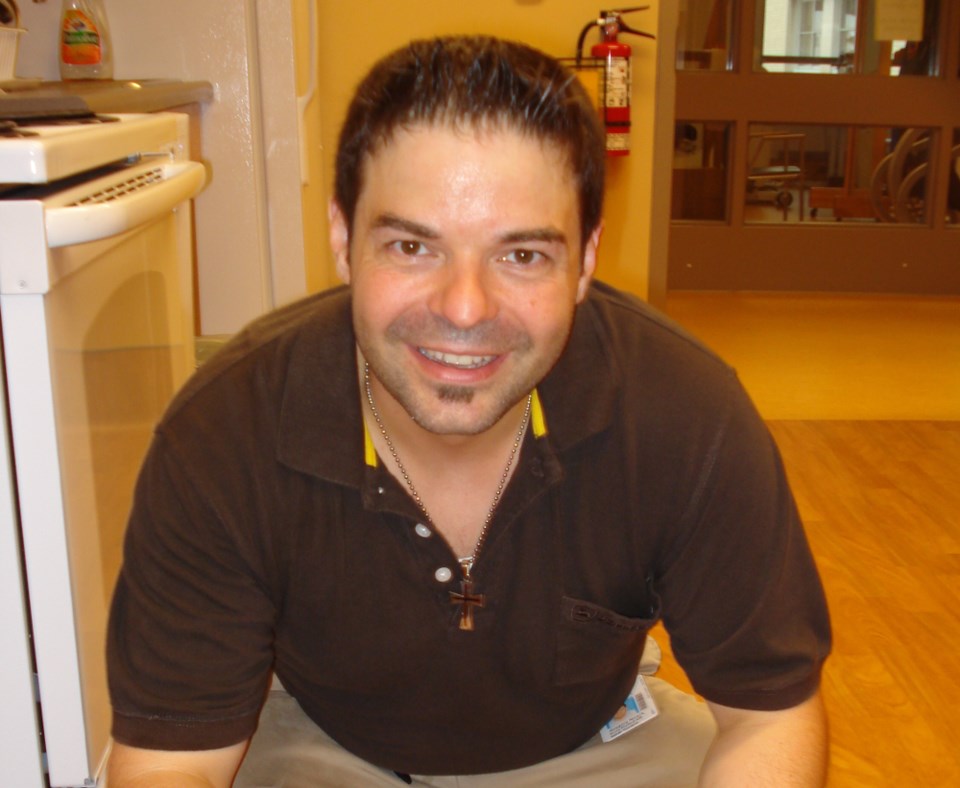Being attacked by a gang of thugs changed Greg Noack’s life, for the worse and the better.
Greg, born and raised in Sault Ste. Marie, was assaulted in 1996 in Victoria, BC.
Though his recovery from the senseless, unprovoked attack was long and hard, he credits the traumatic incident and its aftermath for ultimately leading him to what he describes as his true calling, becoming a rehabilitation therapist with Toronto’s University Health Network.
“When I was walking home that night I was attacked, then I fell in love with what those people who helped me did for a living. Now I’m working in this great job and I’ve found my calling. I really enjoy it. Brain injuries can be overcome,” Greg told SooToday.
“I was a typical Saultite, I loved hockey, I had a great upbringing, born and raised in ‘the P Patch,’” Greg recalled.
After high school, Greg earned a post-secondary education in business administration in Windsor.
Upon graduation, Greg became a BiWay store manager at 23, but found the business management world frustrating.
He left the job and headed west, to Victoria, BC.
“I felt annoyed, I had a good family, but it was all the expectations society puts on you. 20 years ago, people still thought you had to have the wife, the house with the picket fence, and because I wasn’t achieving those goals I just said ‘I’m going out west.’”
In Victoria, Greg did odd jobs to pay the bills.
In the early hours of Nov. 11, 1996, his life changed.
“I finished a shift cleaning floors at five in the morning, I was walking home and a group of people jumped me from behind. The first blow came from behind and other people kicked me in the head.”
The attack was without motive, the attackers never caught, and Greg was left with a brain injury.
“I was in a coma in hospital for 15 days. A severe brain injury comes with being unconscious for six hours, but I was unconscious for 15 days, so I’m amazed I’m able to do what I’m doing. When I woke up I didn’t know how to walk, I lost the use of my left arm, it was like being a newborn, I didn’t know how to do anything (though he was able to speak).”
Greg went through a year of rehabilitation in BC, learning to walk and use his left arm again, then went through another two years of recuperation, staying with his mother and stepfather in the Kitchener-Waterloo area.
“I had to relearn everything. I tell my patients your brain is like a circuit board. When it’s turned off, the power’s gone and when it turns on again, you have to rewire everything.”
“I still suffer from fatigue. That’s something from my brain injury I’ll never get over, but considering how bad it could have been, I was fortunate and blessed everything rewired well for me…I can’t believe how good my memory is, because memory issues are commonplace with brain injuries,” Greg said.
“I was able to really rest and recover with my mom’s help.”
After going through such a traumatic experience, and with a desire to help others who had suffered brain injuries, Greg decided to come back up north and enrolled in Sault College’s Occupational Therapist Assistant and Physiotherapy Assistant program.
His two years at Sault College also gave him a chance to spend time with his father (now deceased), who owned a local restaurant.
“I like the Sault. I can leave the Sault but you can’t take the Sault out of me,” Greg chuckled.
“It was interesting because when I was answering questions on exams and writing essays, I could give examples by just using my own experience, my own rehab.”
Greg graduated with honours in 2001, and has worked at Toronto’s University Health Network since, now a Rehabilitation Therapist and also conducting research.
A project Greg is excited about is Toronto Rehab’s Telerehab Centre for Acquired Brain Injury, which provides online therapy services to people across Ontario, including remote or rural areas, who are living with the effects of acquired brain injury.
Greg, 45, who has run in seven marathons, will be taking part in his eighth marathon, the Goodlife Fitness Toronto Marathon on May 6, aiming to raise $10,000 for the Ontario Brain Injury Association (OBIA) and Toronto Rehab’s Telerehab Centre for Acquired Brain Injury.
On a personal level, Greg is calling the marathon #8 for Brain Injury Sake.
“There are over a million Canadians that live with the effects of an acquired brain injury, and we never hear of that,” Greg said.
Those interested in supporting Greg in his fundraising goal can go online and make a contribution.
“I want people to have what I have (access to resources now available only in hospitals in big cities, through the Telerehab Centre).”
Greg also wrote a book entitled ‘My Invisible Disability,’ published in 2006, sharing his experiences.
“I can walk and write, published a book and I’m running a marathon. You’re never the same, there’s no such thing as a 100 per cent recovery from a brain injury, but you can have a quality of life after it, and that’s what I want people to know, to not give up even though it’s a struggle.”
